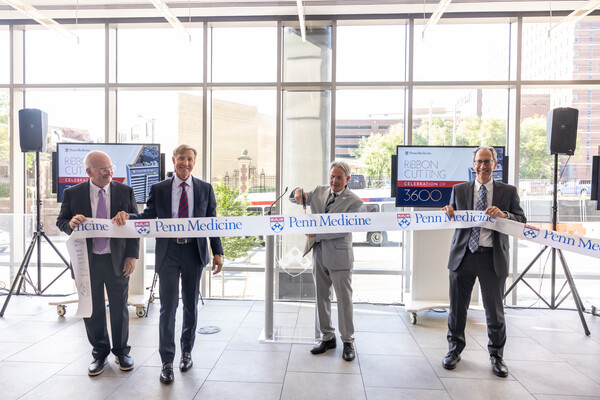
Image: Kindamorphic via Getty Images
New research on how tuberculosis (TB) bacteria develop multi-drug tolerance points to ways TB infections might be cured more quickly. The study was published online last week in Cell. The results identify both a mechanism and a potential therapy for drug tolerance that is induced in the TB bacteria by the host cells they infect. Currently, TB treatment requires a complex, long-term curative regimen of at least six months. Researchers at the University of Pennsylvania School of Medicine and the University of Washington described the existence of multi-drug tolerant bacteria that form within days of infection in zebrafish, an animal model for studying TB.
Click here to view the full release.
Karen Kreeger

Image: Kindamorphic via Getty Images

nocred

nocred

(From left) Kevin B. Mahoney, chief executive officer of the University of Pennsylvania Health System; Penn President J. Larry Jameson; Jonathan A. Epstein, dean of the Perelman School of Medicine (PSOM); and E. Michael Ostap, senior vice dean and chief scientific officer at PSOM, at the ribbon cutting at 3600 Civic Center Boulevard.
nocred